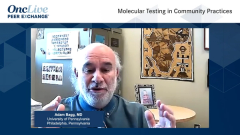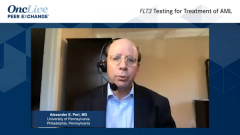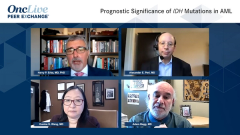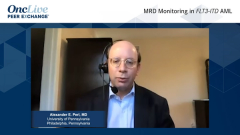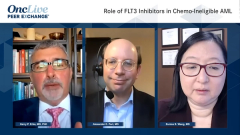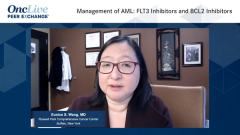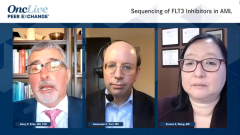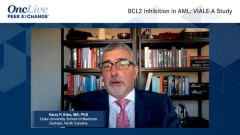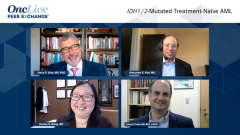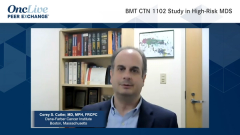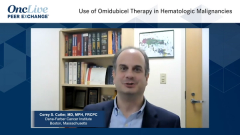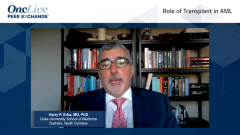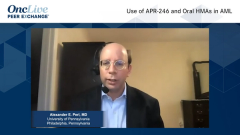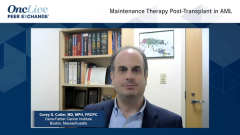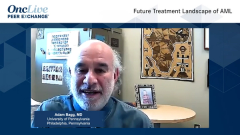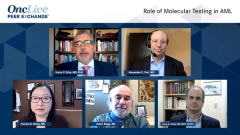
Use of Omidubicel Therapy in Hematologic Malignancies
Episodes in this series

Harry P. Erba, MD, PhD: A lot of what we are talking about here in terms of barriers to transplant is the toxicity, especially in some of our older patients. I know the transplant community has been working hard at trying to improve a number of the toxicities that are seen in terms of time to engraftment and graft-vs-host disease. Along those lines, this year [2020], there have been presentations and publications regarding a new drug, or cellular therapy, I should say: omidubicel. This is something I know nothing about, so Corey, can you educate these leukemia doctors who do not do transplant about this?
Corey S. Cutler, MD, MPH, FRCPC: Sure. Omidubicel is a mouthful, so I like to use NiCord, which is the commercial name for this product. It is a modified umbilical cord product that we are using in transplantation on an experimental basis. We have not seen the full data set from a large randomized trial that was completed, but there has been a release of top-line data that suggested that this product will or has met its primary efficacy end points in a trial. This is a product with which we take umbilical cord blood, and we mechanically separate the CD34-positive hematopoietic progenitors from the CD34-negative fraction. The CD34-negative fraction is re-cryopreserved, and the CD34-positive stem cells are expanded in a somewhat proprietary fashion by the company Gamida Cell. After an expansion has been completed, both the CD34-positive expanded stem cells and the CD34-negative fraction, comprised largely of T cells, are infused after conditioning is completed.
The trial was a randomized attempt to look at the efficacy of this expanded or modified cord blood product against a standard cord blood transplant, which could either be a single-cord or a double-cord transplant, and we use double-cord transplants at our institution, Dana-Farber Cancer Institute. The trial was led by Mitch Horwitz, MD, from your institution, Duke University School of Medicine, and the top-line data suggested that the time to neutrophil engraftment was dramatically and statistically reduced in the NiCord [omidubicel] group down to 12 days, which is the same as any peripheral blood stem cell product. The rate of engraftment was higher in the modified product, and we expect that early things like early transplant-related morbidity, days in hospital, infection rates, and all those important end points that go along with engraftment will be significantly better in the NiCord, or omidubicel, arm. We are anxiously awaiting the full data set there. That data will likely be presented at the Transplant & Cellular Therapy meetings in February in 2021.
There was a second abstract at ASH [the American Society of Hematology 2020 annual meeting], which looked at this product in severe aplastic anemia. It was a small study: only 8 patients were reported, the first 3 of whom received both the omidubicel product with haploidentical stem cells, as a safety net if you will, against failure to engraftment. There were 5 subjects who received this product alone, and my understanding is that all 5 engrafted. There was 1 subject of the 8 who had late graft failure, but 7 of 8 subjects were reported as alive and well at the ASH presentation recently.
This is an important advancement. This will likely become the first manipulated cellular product to be approved in stem cell transplantation. It remains to be seen how it will be used in the real-world setting, but it is exciting that the umbilical cord transplant field is moving forward.
Harry P. Erba, MD, PhD: Thank you. Yes, it is my pleasure to move to Duke and work down the hall from Mitch Horwitz. He is a great guy, and he has done well in leading this trial. He also led the BMT CTN trial of reduced intensity vs myeloablative transplant. That was a negative trial, but it led to important work that we discussed from Chris Hourigan, MD, PhD.
Transcript Edited for Clarity


